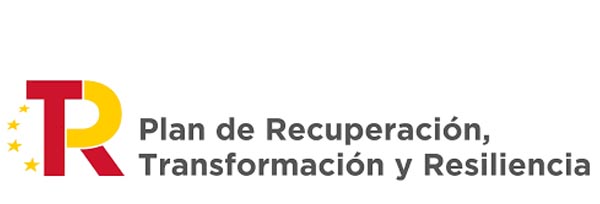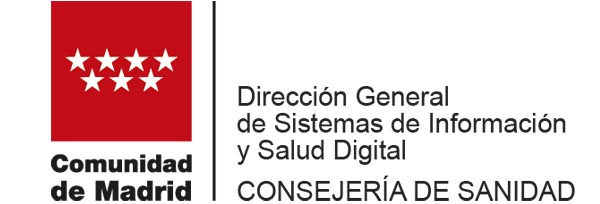-
32 hours of dedication
-
February 28 - March 31, 2023
-
Deadline for application: February 21, 2023
-
100% online
-
Limited places
Learning objectives
![]()
GENERAL
![]() Understand the development current and potential of AI in healthcare.
Understand the development current and potential of AI in healthcare.
![]() Inspire the search for AI solutions and applications in healthcare.
Inspire the search for AI solutions and applications in healthcare.
SPECIFIC
![]() To learn about Artificial Intelligence and Big Data technologies, methods, approaches and tools and how they are revolutionizing the healthcare sector.
To learn about Artificial Intelligence and Big Data technologies, methods, approaches and tools and how they are revolutionizing the healthcare sector.
![]() Apply the knowledge acquired through practical exercises.
Apply the knowledge acquired through practical exercises.
![]() Illustrate the application possibilities of Artificial Intelligence through the knowledge use cases.
Illustrate the application possibilities of Artificial Intelligence through the knowledge use cases.
![]() Propose a project to develop a solution using Artificial Intelligence.
Propose a project to develop a solution using Artificial Intelligence.
PROGRAMME AND CONTENTS
Tuesdays and Thursdays from 6:00 p.m. to 8:00 p.m.
![]() 100% online.
100% online.
![]() Methodology: model intensive with live sessions on Tuesdays and Thursdays from 18.00 to 20.00 hours.
Methodology: model intensive with live sessions on Tuesdays and Thursdays from 18.00 to 20.00 hours.
![]() Recorded sessions available to students.
Recorded sessions available to students.
![]() A questionnaire of assessment will be made at the end of each theoretical unit.
A questionnaire of assessment will be made at the end of each theoretical unit.
![]() Practical activities at area of knowledge of "Machine Learning" and "Deep learning".
Practical activities at area of knowledge of "Machine Learning" and "Deep learning".
![]() Elaboration of a final project at group.
Elaboration of a final project at group.
Introduction to the Digital Health Program and Strategy
Through some examples and experiences we will learn about the challenges and opportunities offered by Artificial Intelligence (AI) in a context of digital transformation to add value in the care and treatment of patients and diseases.
Data Literacy in Health
It is now necessary to have a "Data Literacy" that helps to improve the role of health professionals. This change of mental model involves understanding data as a strategic asset that derives an advantage if it is analyzed and transformed into knowledge. Knowledge of the typologies of health data and its life cycle is vital, as is the correct governance of this new asset. Good governance will establish a correct organization of professionals dedicated to its exploitation, quality, security and regulatory compliance.
Ethics and Health
Behind the data and the devices that obtain them there are people. Behind the design of some mathematical algorithms there may be biases. Respect for current legislation and legal responsibility are necessary; an ethical perspective is essential.
Digital Platform and Analytical Environment Capabilities
This session will provide students with the technical skills necessary to register and access the platform, as well as to upload all the academic materials for the practical sessions.
Methodology of design of Artificial Intelligence Models
In order to develop and validate quality predictive models it is necessary to follow a proven methodology. Understanding that these models provide solutions to everyday problems in the healthcare world and how to build them is the goal of the session. We will detail the phases of information description, modeling and validation, description of results and deployment of model in the healthcare environment.
Session internship of Machine Learning in Health: supervised and unsupervised learning applied to health.
In this session internship we will use the technological platform to show examples of Machine Learning models applied to the health sector: both supervised learning models (drug classification and identification of similar drugs) and unsupervised learning (homogeneous grouping of doctors).
Deep Learning Session internship : Melanoma Detection in Healthcare
In this session internship we will use the technology platform to show an example of application internship to the health sector. We will develop a model for melanoma detection using the data set of HAM 10000 images. We will explain how a deep neural network is trained and how we can improve its performance to be used for early diagnosis of this disease.
Session 1 of use cases. Lesion analysis in metastatic colorectal cancer.
Target tumor lesions (LTD) measured in 1781 patients with metastatic colorectal carcinoma were analyzed in order to determine differences in LTD dynamics within a tissue (intraclass) or between different tissues (interclass), through the CICIL ("Clustering Classification of Individual Lesions") approach. Cross-correlation coefficients (CC) determining whether each pair of lesions followed similar or opposite dynamics were clustered using the K-means clustering method. The tumor heterogeneity Degree quantified as the median patient CC proved to be a significant predictor of overall survival with a hazard ratio value of 1.44 (1.1-1.9), especially in patients without KRAS gene mutation.
Use Case Session 2: Application of Artificial Intelligence in Telemedicine and Emergency Departments
Application of Artificial Intelligence in Telemedicine and Emergency Services: Triage, Rapid recognition of emergency cases, management of appointments, Optimization of resources and support to operators of care centers and physicians. How is this use case applied in SERMAS?
Methodology of management of Digital Projects in Healthcare
sample A methodology for management of Smart Health projects: phases and milestones of project, Technological infrastructure, preparation of schedule and the organization of project, consideration of potential risks of project, and preparation of budget of the proposal (TCO). All this to guide the students to prepare the work of the program consisting of the essay of the proposed challenge , the solution proposal at schematic level, and the expected results and benefits, and which will be realized at group.
attendance/doubts at design de project
Sessions of advisory service for design of the project Program. All questions on the development of project asked during the course will be answered.
presentation of Projects
presentation of Projects from the estimated 10 groups of 6 persons each. The projects would then be scored and the UNAV scores would be published.
Faculty
![]()
The team of lecturers is made up of AI specialists, company managers, academics and practitioners of recognised professional prestige and proven track record in the field subject , who transmit not only theoretical knowledge, but also their own experience in practical application, providing solutions in the health sector.
application,
enrollment Y
CERTIFICATION

This focused course, "instructions of Artificial Intelligence applied to healthcare" is aimed at SERMAS healthcare professionals who wish to learn about the present and future; challenges and opportunities of Artificial Intelligence (AI) in their sector.
The deadline to apply for the Admissions Office to the course is now closed. Applications will be resolved on February 24, 2023, and all candidates will be notified of the decision on the same day.
The process of Admissions Office is supervised by a committee of SERMAS, which will evaluate both academic criteria and the impact on health care of those interested in attending the training.
The participants who accredit a participation in 90% of the sessions and a finalgrade of 80% obtain a certification from the University of Navarra equivalent to 1 ECTS credit and a accreditation of credit of training in Health (CFS in process).
The deadline for requests for Admissions Office
has been completed.
NO FURTHER APPLICATIONS WILL BE ACCEPTED.

Assumpta Chacón Moreno
Professional Programs
University of Navarra

31009 Pamplona, Spain





